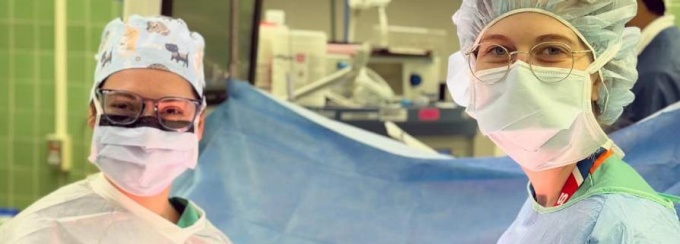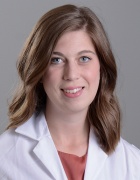Comprehensive Flexible Endoscopy Fellowship

Overview
The University at Buffalo Comprehensive Flexible Endoscopic Surgical Fellowship provides a variety of surgical experiences with a focus on advanced endoscopic procedures. The clinical experience is gained through progressive responsibility and increased autonomy over the course of the one-year fellowship. This includes the opportunity to allow the fellow to take call as a surgical attending and to manage their own patients with faculty back up as needed.
The fellowship follows the national Flexible Endoscopy curriculum set forth by the Fellowship Council.
At the conclusion of the fellowship in Flexible Endoscopy, the fellow will be able to perform advanced endoscopic therapeutic procedures along with a robust laparoscopic and robotic general surgery experience. To achieve this goal, this curriculum provides a guide to the topics for study, and the knowledge and skills required to become a surgical endoscopist. Detailed objectives, educational content and clinical skills for each unit can be found on the Fellowship Council website.
The curriculum consists of six major units:
- Unit 1 – Acid- Peptic Disease
- Unit 2 – Biliary tract and pancreatic disorders
- Unit 3 – Gastrointestinal malignancy
- Unit 4 – Motility
- Unit 5 – GI Pathology
- Unit 6 - Endoscopy
In addition to the objectives provided by the Fellowship Council, elements unique to our UB fellowship include:
- Train the fellow in minimally invasive and robotic surgery
- Train the fellow in endoscopic bariatric procedures
- Review of program-provided book: The Gastroenterological Endoscopy by Wallace, Fockens, and Sung
Case Volume
Fellows are expected to log the following number of cases by the completion of the one-year fellowship.
| Case Type | Required Number of Cases |
|---|---|
| Upper Endoscopy | 150 |
| w/ dilation | 20 |
| ERCP | 200 |
| cannulation success rate | 90% |
| therapeutic | 90% |
| Colonoscopy | 200 |
| w/ polypectomy & hemostasis | 50 |
Educational Didactics & Experiences
- MFSH M&M (Wednesdays, 7 a.m., required)
- Weekly Department of Surgery Grand Rounds (Thursdays, 6:45 a.m., required)
- Present at Department of Surgery Grand Rounds (required)
- Quarterly Journal Club (required)
- Monthly Upper GI Conference (First Tuesday of the month, 5 p.m., optional)
- Weekly ECMC M&M Conference (Tuesdays, 7 a.m., optional)
- Present at Department of Surgery Research Day (optional)
- Attendance at national meetings: SAGES
- Attend SAGES Endoscopy Course for Fellow
- Submit an original manuscript for publication
- Opportunity to attend educational seminars deemed appropriate by the Program Director, including but not limited to: courses sponsored by SAGES or other reputable/national organizations
Fellows
2025–2026

Holly Johnson, MD
Medical School: Jacobs School of Medicine and Biomedical Sciences at the University at Buffalo
Residency: Jacobs School of Medicine and Biomedical Sciences at the University at Buffalo
Contact
Program Director

1150 Youngs Road Suite 108 Williamsville, NY 14221
Phone: 716-898-5186; Fax: 716-898-3194
Email: ecfung@buffalo.edu
Associate Program Director
![Ethan Craig.]()
Ethan Craig, MD
Clinical Assistant Professor
Department of Surgery
Program Administrator
![Katie Petrell.]()
Katie Petrell
Training Program Administrator
Department of Surgery
Erie County Medical Center, DK Miller Building, 3rd Floor, 462 Grider Street, Buffalo, NY 14215
Phone: 716-898-5654
Email: katiepet@buffalo.edu

